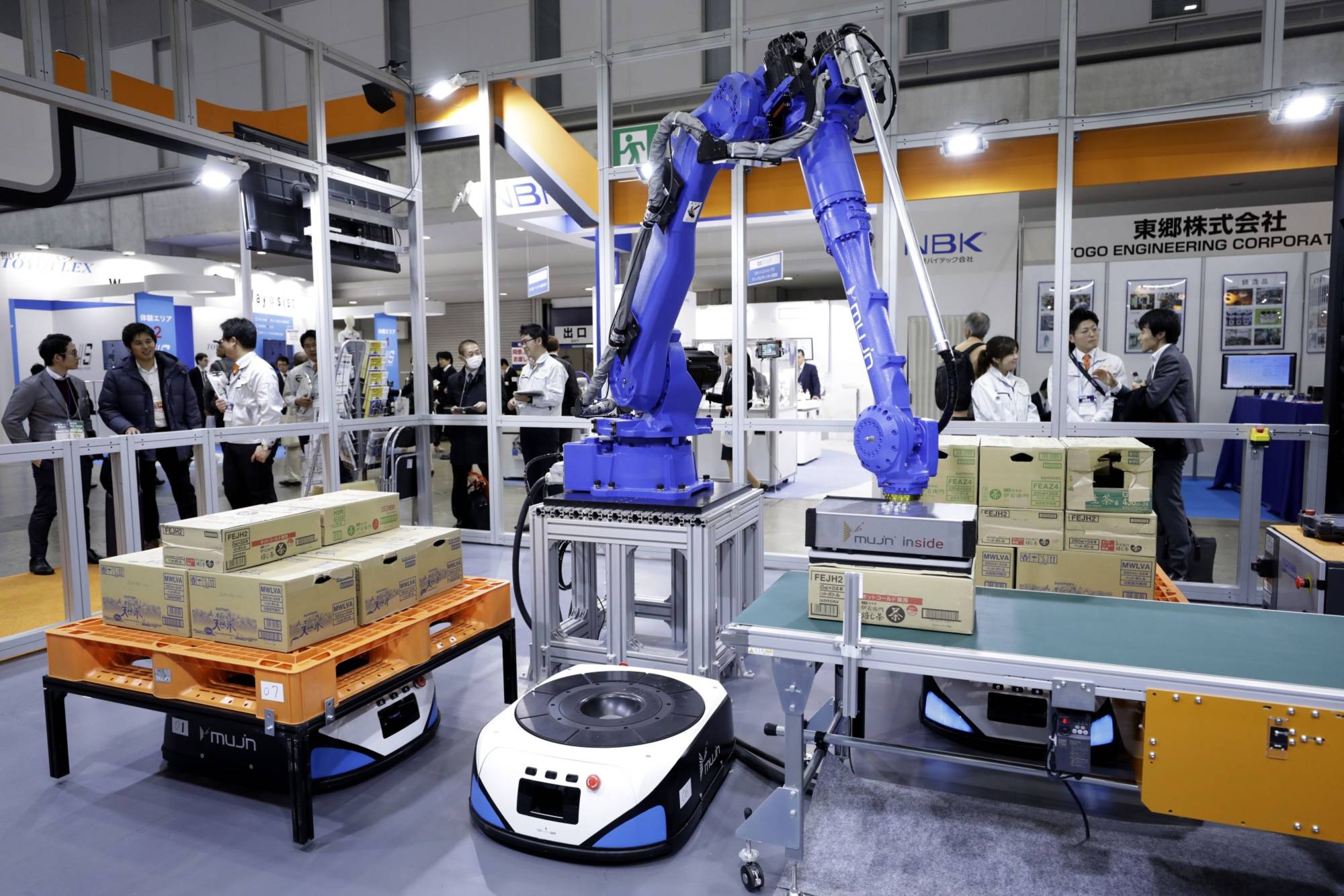Getting products from one place to another with as little human contact as possible is becoming an imperative for businesses as retailers, warehouses and transport providers adapt to the coronavirus pandemic, seeking to minimize the risk of infections to their employees and customers.
Tsubakimoto Chain Co. is seeing more demand for its sorting and conveyor systems as companies seek ways to move things around, while startup Hacobu sees an opportunity to boost use of its online platform for trucks to exchange information as they load and unload goods at warehouses, a process that’s still mostly done on paper.
The need for automation is especially acute in Japan, where a labor shortage was already putting pressure on companies to find ways to run their businesses with less people. Now, that transition is being spurred on by the pandemic, which has boosted online buying and raised concerns among shoppers about being infected by items delivered to their doors. All told, the market for next-generation logistics systems in Japan is set to more than double to ¥651 billion ($6 billion) through 2025 from 2018, according to Fuji Keizai Co., a Tokyo-based research firm.


















With your current subscription plan you can comment on stories. However, before writing your first comment, please create a display name in the Profile section of your subscriber account page.